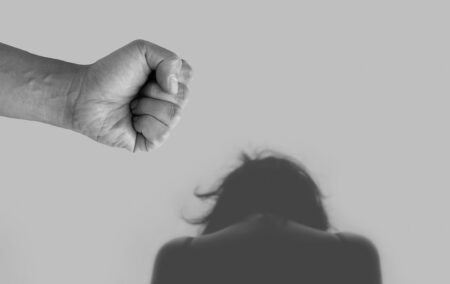Until South Africa manages to improve the material circumstances of many poor and working class families, domestic and gender-based violence remain a major concern, IRR analysts warn.
Such violence, they say, is a symptom of broken family units and of the pressures in households struggling with poverty.
According to the South African Police Service annual report released earlier this year, a total of 621 282 contact crimes were reported between April 2019 until March 2020. Domestic-related crime reported in this period stood at 38 656 incidents, meaning that 6% of all contact crimes were domestic related. These statistics were collated before the nationwide lockdown in March.
The quarterly crime statistics released last week, covering the lockdown period, indicated that sexual offences decreased by 39.7%. All sexual offences – such as rape, sexual assault, attempted sexual offences and contact sexual offences – showed declines of more than 35% from the previous year. But analysts say these figures could be misleading.
According to Police Minister Bheki Cele, the low numbers of domestic abuse and sexual offences reported could have been due to women not being able to escape their abusers and reporting crimes committed against them.
Even if the lockdown was effective in reducing domestic and gender-based violence, such crimes remain at worrying high levels. Between April and June this year, nearly 8 000 of domestic-related common assault incidents and more than 3 000 domestic-related aggravated assaults were reported. As lockdown restrictions are lifting, crime levels are returning to their previous levels. Analysts warns that reports of domestic and gender-based violence will likely increase, too.
The analysts point out that while domestic and gender-based violence occur in wealthier segments of society, there is a clear link between poverty and gender-based violence.
According to Action Aid, an international charity that works with women and girls, if more girls have access to quality education, there would be fewer child marriages (often characterised by ongoing abuse). Action Aid also states that women living in poverty have fewer resources to enable them to flee an abusive spouse.
For South Africa to reduce domestic violence, analysts argue, it must do more to reduce poverty and generate jobs.

